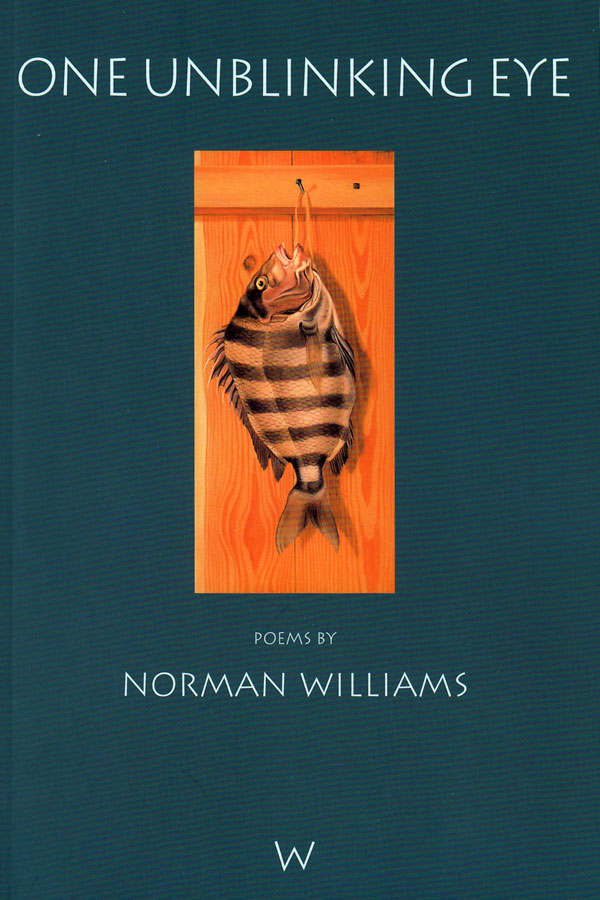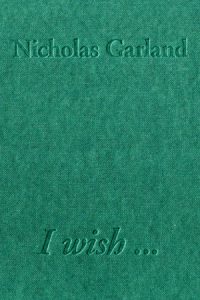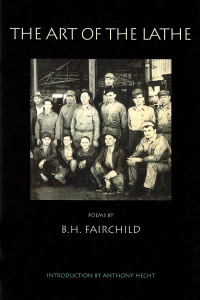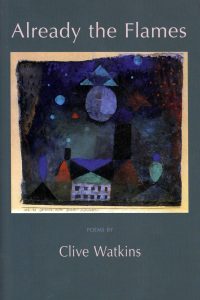One Unblinking Eye
£8.95
The poems in One Unblinking Eye cast a steady and serious gaze at life outside the American beltways. Whether testifying at a prayer meeting in Indiana, tramping the backwoods of northern New England, or working an oil derrick in the Gulf, the inhabitants of these poems live on the margins of U.S. society. “They are the left behind, odd-mannered ones/ Who speak in starts,” Mr. Williams writes of the last residents of a West Virginia mining town. Describing the woods of central Maine, he speaks of “lives scraped from sides/ Of deer and garden plots; where double-wides / On concrete pads abut a hard-pan road.”
It is the art of these poems to convince the reader that these lives matter. There is desperation here, and the threat of madness, but there is an equal measure of determination and faith. In one poem, Mr. Williams writes of a fisherman haunted by his daughter's death, who “casts his line / In hopes a flash and strike will draw him back.” These words could describe the poet's method as well. The work in this collection is built on a supple metrical foundation; it is filled with glancing rhymes and wordplay; and it is touched off by striking images. It is, in other words, composed with care, and it richly rewards a careful reading.
Out of stock
One Unblinking Eye
"This fine new book of poems by Norman Williams glistens with so many virtues that I have settled on the four that most impress me. 1) fidelity of eye to an almost Flemish degree of accuracy; 2) a dramatist’s fine finger on the pulse of veiled, impending, or remembered crisis, 3) a moral intelligence that teeters alarmingly between the vulnerable and the culpable, and 4) a Frostian stoicism attuned to the rigors and tyrannies of New England’s more corrosive weathers. This is a vigorous addition to the body of important American poetry." – Anthony Hecht
“Norman Williams’s poems have a wonderful descriptive truth, as well as a fundamental decency, all the more moving for its acknowledgment of the injuries and impulses that can tempt us away from patience and restraint. In one poem, he speaks of ‘faith expressed / In poor things, carefully arranged,’ and thanks to his own care and skill with language, he makes even his humblest subjects shine. This is a remarkable collection.” – Timothy Steele
“In ‘Words for a Young Widow in Maine,’ Norman Williams rebukes those who might dismiss the dead husband:
… And you, who thought
Him mean, or too devoted to his drink,
Consider how the common fingerstones,
Bathed in the tidal slabs, grow luminous.
This poem does more than find the beauty in the commonplace; it explores the intricacies embedded in that perception. The quiet, luminous complexity of this poem is a hallmark of the splendid poems in Williams’s One Unblinking Eye.” – Andrew Hudgins
Reviews of One Unblinking Eye
London Magazine, April-May, 2004
"Williams [lives] north of Boston [and] … is an attorney in Burlington Vermont … [He writes] clear, down-to-earth poems that, at their best, rise to heights of moral concern … Among the most moving of [his] offerings is a sonnet remembering the Civil War [‘Near Antietam’]:
Shunning the British tourist bus, we walk,
My child and I, the West Woods where, like dogs
Who know their death is due, the wounded took
Themselves to give up hope. The horror begs
Imagining – the soldiers hauling limbs
Hacked off or messmates dead, and everywhere,
Mixed with the summer scent of swelling plums,
A stench of putrid flesh and burning hair.
Here Lee was turned. That night the forest filled
With muttered names of loved ones left, and cries
From mangled soldier pleading to be killed.
Seeing my distant look, my daughter tries
My sleeve: ‘What is it, what?’ she asks, and I
Say ‘nothing, nothing’ – though ‘nothing’ is a lie."
– Anne Stevenson
Booklist
Declines, losses, and defeats are much on Williams’ mind, and he adjusts to them pretty well, thanks in no small measure, it often seems, to his fluency with formal verse. The demands of form and the pleasure of making rhyme and meter elegantly float a natural-sounding, accessible diction constitute a kind of assuagement for the heart-sadness of Williams’ poems about tragedy in America’s heartland, aging fathers, departed lovers, and surviving children who died in infancy. There is balm, too, in the procession of the seasons, and Williams is capable of passages about those age-old changes that are as indelibly correct as anything in Frost or even Wordsworth: "Here spring begins its slow, corrosive work: / A single drip, another, then a third / Drill cigarette burns in the snow." Religion, too, affords its solace, as in "The Doomsayers Awake following the Predicted Apocalypse," about a morning whose glories "bespeak a love too eager to forgive." In Williams’ work, precise imagery unites with humanity of feeling to become poetry of everlasting refreshment. – Ray Olson
The Poetry Kit
"Norman Williams … resembles few poets as much as he does his fellow Vermonter, Robert Frost – tthe Frost, that is, of North of Boston … [Williams] is a remarkable poet … There is unusual mastery in [the poems of One Unblinking Eye]." – Gilbert Wesley Purdy
Taking Pan Fish
Cedar Lake, Indiana
September now – the summer hordes
Have left this mudsink for their jobs
At stamping plants or steelyards.
Unemployed, my father lobs
A worm and bobber out, then settles
For an early drink. Idleness
Has its rewards. He tells of battles
Joined by the pike and small-mouth bass
That lurked here once, and as he speaks
My bobber dips, dragged bottomward
By unseen fear. A crappie breaks
The surface, flailing, hook set hard:
My father leaps up, yanks the rod
And grabs the fish up by the tail.
“Beauty!” he beams. And I thank God,
Who has, for once, not let me fail.
The crappie writhes. Its stipple fades.
It gasps, but cannot catch its breath.
Wide-eyed and quivering, it bleeds
Behind the gills, then thrashes with
What seems a frantic, desperate
Resolve. My father, blade in hand,
Lays hold of it and operates
To salvage weights and leader. Stunned
And motionless, the crappie mouths
A final prayer which, if heard, is not
Allowed. Then he whacks it, sheathes
The knife and, tossing off a hook shot,
Flings it toward the Evinrude. All day,
As the fish grows slowly stiff and curled,
It fixes one unblinking eye
On me, as though I made this world.
The Waywiser Press
October in the North
With this first frost, the forest quickens –
The squirrels which, a month ago,
Had screeched and somersaulted trunk
To limb, now scratch the hickory
And beech for nuts, like street urchins
Made desperate by poverty.
The final birds, the flycatcher
And crow, start south. A fox, whose coat
On summer evenings gleamed among
The goldenrod, this morning strikes
The neighbor’s coop and drags away
Its kill. There is a forest sense:
Some larger hand, once generous,
Is closing to a miser’s fist.
The Waywiser Press
Excerpts
Taking Pan Fish
Cedar Lake, Indiana
September now - the summer hordes
Have left this mudsink for their jobs
At stamping plants or steelyards.
Unemployed, my father lobs
A worm and bobber out, then settles
For an early drink. Idleness
Has its rewards. He tells of battles
Joined by the pike and small-mouth bass
That lurked here once, and as he speaks
My bobber dips, dragged bottomward
By unseen fear. A crappie breaks
The surface, flailing, hook set hard:
My father leaps up, yanks the rod
And grabs the fish up by the tail.
"Beauty!" he beams. And I thank God,
Who has, for once, not let me fail.
The crappie writhes. Its stipple fades.
It gasps, but cannot catch its breath.
Wide-eyed and quivering, it bleeds
Behind the gills, then thrashes with
What seems a frantic, desperate
Resolve. My father, blade in hand,
Lays hold of it and operates
To salvage weights and leader. Stunned
And motionless, the crappie mouths
A final prayer which, if heard, is not
Allowed. Then he whacks it, sheathes
The knife and, tossing off a hook shot,
Flings it toward the Evinrude. All day,
As the fish grows slowly stiff and curled,
It fixes one unblinking eye
On me, as though I made this world.
The Waywiser Press
October in the North
With this first frost, the forest quickens -
The squirrels which, a month ago,
Had screeched and somersaulted trunk
To limb, now scratch the hickory
And beech for nuts, like street urchins
Made desperate by poverty.
The final birds, the flycatcher
And crow, start south. A fox, whose coat
On summer evenings gleamed among
The goldenrod, this morning strikes
The neighbor's coop and drags away
Its kill. There is a forest sense:
Some larger hand, once generous,
Is closing to a miser's fist.
The Waywiser Press





